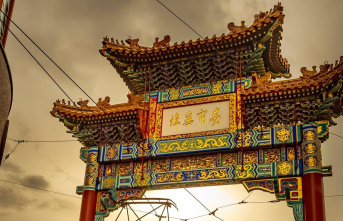The Fatimiya mosque in Kandahar, province was the victim of a carnage. This attack occurred a week after 46 people were killed in a bombing at a Shiite mosque north of Afghanistan by an affiliate of Islamic State.
Fears have been raised that IS, an enemy of the Taliban and the West, is expanding its presence in Afghanistan due to sectarian violence.
Hafiz Sayeed was the Taliban's chief of Kandahar's Department of Culture and Information. He said that 47 people were killed and at most 70 others had been injured in the attack.
Murtaza, a worshiper, who, like many Afghans, goes by one name and claimed he was inside the mosque at the time of the attack. He reported four explosions, two outside and two within. According to him, Friday prayers at the mosque draw hundreds of people.
Murtaza, another witness, said that he saw two bombers. He claimed that one bomber detonated explosives at the gate and the other was among the worshippers inside.
He claimed that another suspect attacker was shot by security personnel at the mosque.
Video footage captured bodies lying on blood-stained carpets. Survivors were seen pacing around in daze, crying out in pain.
Global religious society the Shiite Assembly of Ahl al-Bayt condemned the attack on Kandahar and accused the Afghan security forces of being "incapable" to address such attacks.
Like Afghanistan's Taliban rulers, the Islamic State group is composed of Sunni Muslims and views Shiite Muslims to be apostates that deserve death.
Since August, when the Taliban took power and the U.S. forces were withdrawing, IS has been responsible for a series of bombings that killed many people across the country. In smaller attacks, the group also attacked Taliban fighters.
It would have been the first major attack by IS in southern Afghanistan since the U.S. withdrawal allowed the Taliban to take control of the country. Recent attacks in the east, north and capital of Afghanistan have raised doubts about the Taliban's ability counter IS.
Pakistan, a neighbor, has called for world leaders to support the Taliban and condemned the "despicable attacks against places of worship" in a statement by its foreign ministry.
The Taliban have vowed to restore security and peace after decades of war, and they have given assurances to the U.S. that the country will not be used to launch extremist attacks against other countries.
The Taliban also promised to protect Afghanistan's Shiite minorities, which were persecuted in the 1990s under Taliban rule.
While both IS and the Taliban adhere to strict Islamic law interpretations, IS is more radical and has better-known branches in Iraq, Syria, and elsewhere.
While the Taliban claim they are building an Islamic state within Afghanistan's borders, IS insists that IS is THE Islamic State. It is a global caliphate that all Muslims must support. It doesn't recognise the Taliban as an Islamic pure movement and is hostile to their nationalist goals.












